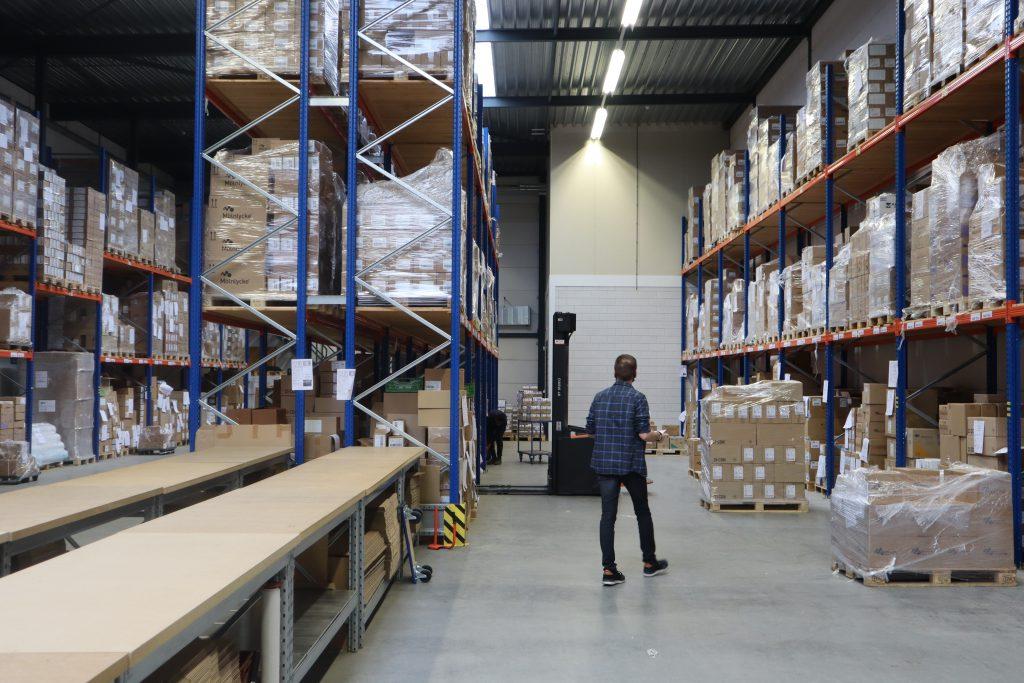Notifications
6 minutes, 16 seconds
-41 Views 0 Comments 0 Likes 0 Reviews

Medical devices play a critical role in modern healthcare — from syringes and surgical tools to pacemakers and imaging equipment. These devices help doctors diagnose, treat, and care for patients. But before they reach hospitals and clinics, they must be stored and handled with great care in warehouses.
Proper medical device warehousing is essential for keeping patients safe, protecting product quality, and ensuring smooth healthcare delivery. Let’s explore how companies can handle medical device warehousing to achieve maximum safety.
Understand the Unique Needs of Medical Devices
Not all products are the same — and medical devices come with very specific needs. Some devices are delicate and can break if handled roughly. Others are sensitive to temperature, humidity, or light.
To store medical devices safely, warehouses must understand the nature of each product. This means carefully reading manufacturer guidelines and making sure storage conditions match what’s required. For example, some devices may need to be kept in a temperature-controlled space, while others may need protective packaging or clean storage areas.
Focus on Cleanliness and Hygiene
In the world of healthcare, cleanliness is non-negotiable. A dusty or dirty warehouse can contaminate medical devices, putting patient health at risk.
Medical device warehouses must maintain strict cleanliness standards. This includes:
Regular cleaning and disinfection of shelves, floors, and equipment
Using protective gear like gloves when handling sensitive devices
Keeping storage areas free from pests and moisture
Some devices may even need to be stored in controlled environments like cleanrooms, where the air is filtered, and access is limited to trained staff.
Use Proper Inventory Management Systems
Knowing where every item is located and how long it has been stored is key to maintaining safety. Medical devices often come with expiration dates or have components that degrade over time.
Modern warehouses use inventory management systems that track every product from the moment it arrives to the moment it leaves. These systems can:
Alert staff when items are nearing expiration
Track batch or lot numbers for quick recalls if needed
Provide real-time information on stock levels
With this technology, companies can avoid using outdated or unsafe products and respond quickly if any issue arises.
Train Staff for Safe Handling
The people working inside a warehouse play one of the biggest roles in ensuring safety. Even with advanced technology, human care and attention are critical.
Warehouse staff must be trained in:
Proper handling and lifting of medical devices
Understanding product labels and safety warnings
Reporting damaged or suspicious items immediately
When staff are well-trained, they become an important layer of protection against errors and accidents.
Maintain Temperature and Humidity Controls
Some medical devices, like certain implants or electronic tools, are sensitive to temperature and humidity. If stored incorrectly, they can lose their effectiveness or even become dangerous.
Warehouses must have reliable climate control systems to maintain the right environment. This includes:
Installing sensors to monitor temperature and humidity levels
Setting up alarms to alert staff if something goes wrong
Regularly checking equipment to ensure it’s working properly
This careful control helps preserve the quality and safety of critical medical devices.
Build Strong Partnerships with Transport Teams
Warehousing is only one part of the healthcare supply chain. Once devices leave the warehouse, they must still reach hospitals, clinics, or patients safely.
It’s important to coordinate closely with transport teams. This means:
Making sure devices are packed properly for travel
Providing clear instructions to drivers and delivery teams
Using tracking systems to follow shipments in real time
A smooth handoff between warehouse and transportation teams ensures medical devices stay safe all the way to their destination.
Final Thoughts
Medical device warehousing is about much more than storage — it’s about protecting patient health and supporting the healthcare system. By focusing on cleanliness, proper training, climate control, and good communication, warehouses can handle these sensitive products with the care they deserve.
As healthcare needs continue to grow, the role of safe and reliable medical device warehousing will become even more important. With the right systems and people in place, companies can help ensure that medical devices arrive ready to make a difference — when and where they’re needed most.

